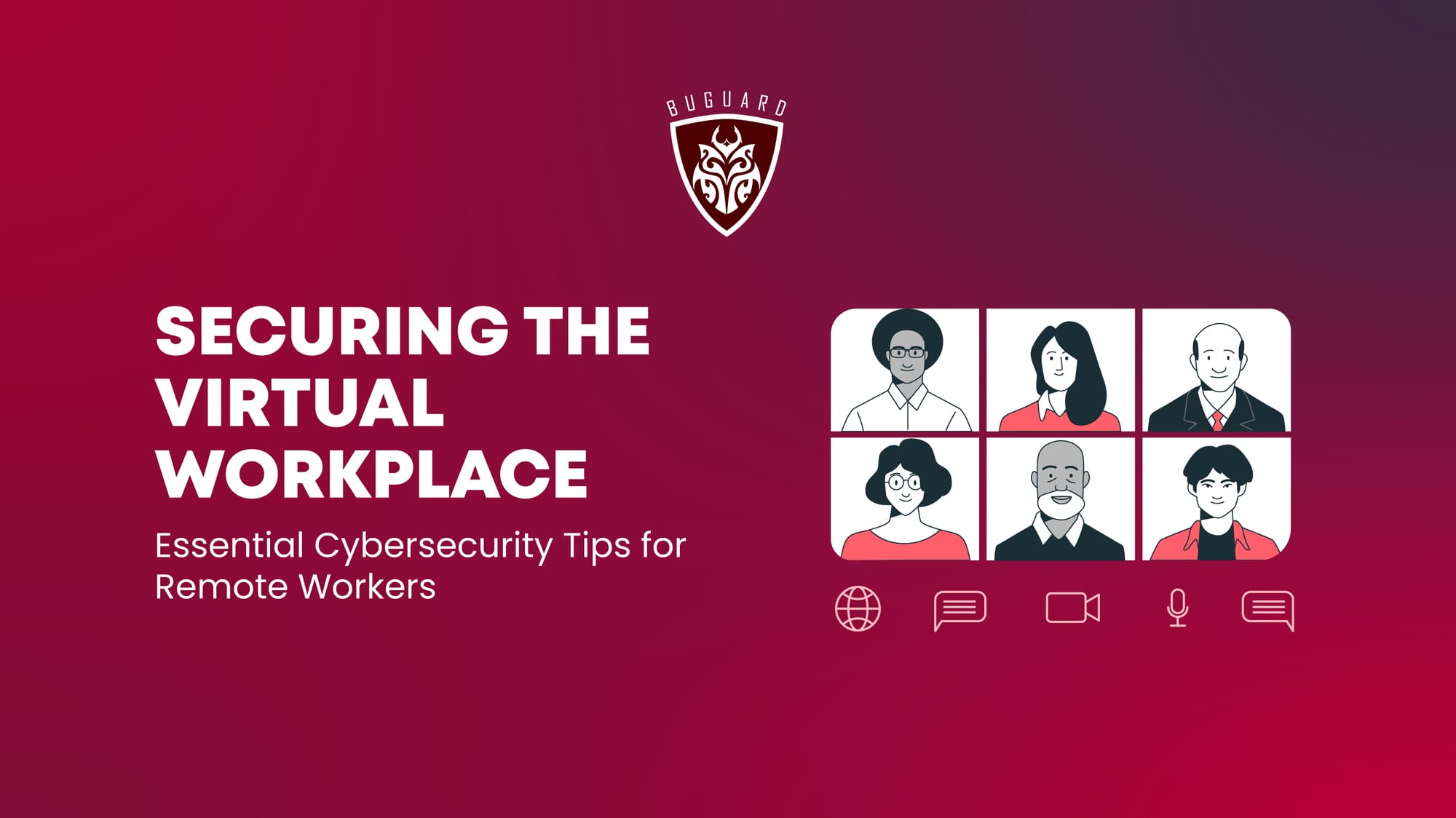Securing the Virtual Workplace: Essential Cybersecurity Tips for Remote Workers 2024

The way we work now has been permanently changed by the digital revolution. Quite a bit of the world's workforce now works remotely.
Just like any change, there are advantages and disadvantages; the good side is this change, employees will get the chance to be more flexible, whether they work from home, cafe, or wherever, also, they will have a better work-life balance.
On the other hand, this fundamental change also brings with it some new difficulties, especially around cybersecurity, and obviously, the need for cybersecurity tips and awareness is needed than ever.
The possibility of cyberattacks has increased as a result of employees using their devices and possibly insecure Wi-Fi connections to access company networks and critical data.
Remote employees must be responsible for the potential risks that could arise due to using their devices and Wi-Fi networks.
In light of this, data protection becomes an increasingly important device security must be given top priority by organizations, and remote workers must be provided with the skills and resources they need to defend against online attacks.
This article is to provide you with essential cybersecurity tips as a remote employee, read on to know more...
Essential Cybersecurity Measures
Device security is a key component of a strong cybersecurity plan for remote work.
Employees should preferably have dedicated work laptops or tablets from their organizations, fitted with the newest security software, such as firewalls, antivirus apps, and encryption tools.
This should be considered as one of the most important tips of cybersecurity tips.
But some companies just don't provide that option and implement a Bring Your Own Device (BYOD) policy; in that case, the development of strict security procedures should be applied.
Simply put, these procedures could include data encryption, remote erase capabilities, and required software installations to protect private data in case a device is lost or stolen.
Empower Your Workspace with Network Security Tips
Securing the virtual channels that data flows through is just as important as protecting the devices themselves. As a result, Network security must be prioritized.
Here are some Network Security tips you should consider whether you’re an employer or employee:
- Encrypting data flows between a remote worker’s device and the organization’s network, a Virtual Private Network (VPN) functions as an encrypted connection.
- Using a VPN reduces the risks connected with public Wi-Fi networks, as it makes all data flow unreadable to possible hackers.
- Multi-factor authentication (MFA) should be used by all remote access points implemented by businesses; because MFA requires a second verification step in addition to a username and password, adding a layer of protection.
Cybersecurity Tips to Identify and Prevent Phishing Attempts
Phishing attempts are still a popular cyber threat, and remote workers are especially vulnerable.
Phishing emails are most known for frequently having the appearance of coming from reliable sources, such as banks, your company, or even coworkers.
Usually, these emails have risky attachments or URLs that are meant to steal personal information like credit card numbers or passwords. To avoid being stolen, it is crucial to teach all employees including remote workers how to spot phishing efforts.
Here are some cybersecurity tips you need to share with your remote workers:
- Check the sender's email addresses carefully: Be careful when responding to emails if the sender's address is misspelled or differs from the sender's name.
- Review the destination URL before clicking a link: You may usually preview a link before clicking on it on email systems. Don't click on the URL if it seems fishy or from unknown senders or resources.
- Avoid opening unexpected attachments: Never open an attachment that you received from an unknown sender.
- Report suspicious emails straight to IT departments: Ask employees to forward any suspicious emails to the IT department so that they can be investigated further.
Going Beyond the Basic Cybersecurity Tips: Developing a Cybersecurity Awareness Culture
Both technical and human factors must provide effective cybersecurity. Therefore, organizations must foster a cybersecurity-aware culture among their remote workforces.
In light of this, all employees should receive regular security training to give them the information and abilities to recognize and counteract cyber threats.
They will be educated about many topics, including password hygiene, phishing attempts, and the best ways to secure home networks.
On the other hand, organizations are responsible for promoting an open atmosphere where workers are free to report suspicious activity without worrying about encountering consequences.
Remember that the human factor is responsible for security as much as the technical components matter. The human factor is the first line of defense for your company.